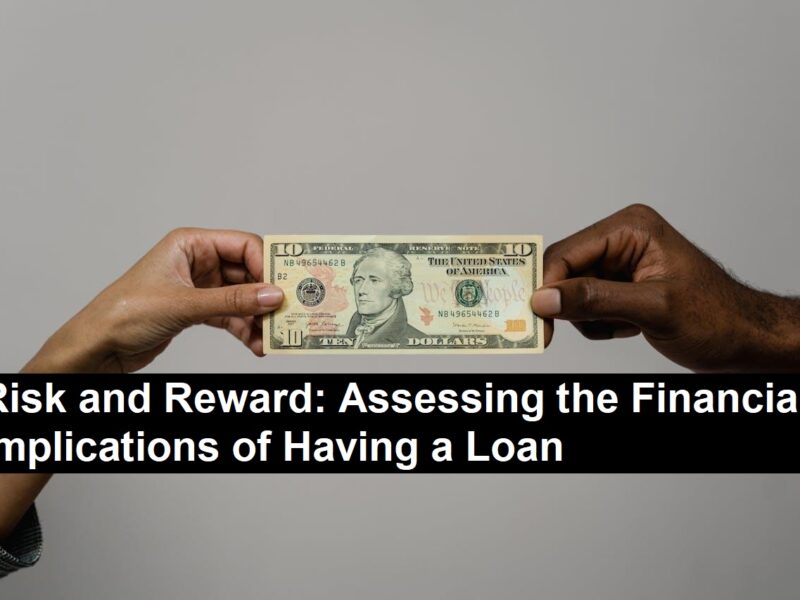Navigating personal finance can be challenging, especially when you’re dealing with a credit score that isn’t good. Many people with bad credit often find themselves with limited options and high stress levels when they’re trying to get financial help.
This is where bad credit loans can be a possible solution, but they are surrounded by myths that can either scare borrowers away or lead them in the wrong direction. Understanding these common myths is the key to making informed choices that can improve your financial situation.
In this article, we’ll clear up five major myths about bad credit loans. By debunking these misconceptions, we’ll give you the clarity and confidence to consider these financial options in emergencies.
Whether you’re thinking about taking up loans for bad credit in the UK or you just want to learn more about personal finance, we’ll explain what it’s like to borrow with less-than-perfect credit.
Let’s begin.
1. They Always Involve Exorbitant Interest Rates
A common myth is that bad credit loans always have sky-high interest rates. While it’s true that these loans often come with higher rates than traditional loans because of the higher risk for lenders, they aren’t always exorbitant.
Many lenders offer competitive rates, especially if you take the time to shop around and compare different options. Some bad credit loans even have flexible terms and reasonable rates, particularly from reputable lenders or credit unions.
It’s important to do thorough research and understand that not all bad credit loans are expensive. They can be a viable option for improving your financial stability.
2. Only Unreliable Lenders Offer Loans for Bad Credit
Another misunderstanding is that only sketchy lenders offer loans to people with bad credit. However, while there are predatory lenders out there, reputable financial institutions also offer credit to those with less-than-perfect credit histories.
Many well-known banks, credit unions, and online lenders provide bad credit loans with clear terms and reasonable rates. These institutions are all about responsible lending, and they often provide resources to help borrowers improve their financial situation.
If you have bad credit and you urgently need a loan, you need to carefully consider your options before making a decision. Make sure to choose lenders with good reputations and a dedication to customer satisfaction.
3. Bad Credit Loans Require Extensive Collateral
Contrary to popular belief, bad credit loans don’t always require you to put up extensive collateral. While some lenders might ask for collateral, especially for larger loan amounts or riskier borrowers, many bad credit loan options are actually unsecured.
That means you don’t need to offer any collateral; instead, factors like your income and credit history are what matter most for approval. Unsecured loans are a more accessible choice for people with bad credit who might not have valuable assets to use as collateral.
However, keep in mind that these loans might come with higher interest rates or stricter repayment terms. Nonetheless, the idea that collateral is mandatory for bad credit loans is just not true and could unnecessarily stop people from exploring their options when they need financial help.
4. These Loans Are Only for Large Amounts of Money
Many people mistakenly believe that bad credit loans are exclusively for large amounts of money. However, in reality, lenders offer these loans in all sorts of amounts, including smaller, more manageable sums.
These loans are designed to meet a range of financial needs, whether it’s covering unexpected expenses or consolidating debt. What’s great is that smaller bad credit loans often come with flexible repayment terms, so borrowers can pay back the money gradually without overwhelming their finances.
Understanding that bad credit loans come in both large and small sizes will give you the power to get the financial help you need, no matter how much you intend to borrow.
Read: How Salary Transparency and Personal Finance Management Influence Organizational Performance
5. Taking a Bad Credit Loan Will Always Hurt Your Credit Score
There’s another misconception that taking out a bad credit loan inevitably damages your credit score. While it’s true that certain actions, like missing payments or defaulting on loans, can negatively impact your credit, if you handle a bad credit loan responsibly, it can actually improve your score.
With timely repayments, you can show that you’re financially responsible, which can gradually help rebuild your creditworthiness. Moreover, having different types of loans in your credit history can positively influence your credit score.
By knowing how to manage a bad credit loan wisely, you can minimise any potential harm and start working toward a stronger credit score overall.
To Sum Up
Now that you’re aware of these misunderstandings about bad credit loans, it’ll give you a better grasp of how these financial options actually work. While there are challenges like higher interest rates and the chance of affecting your credit score, it’s not all doom and gloom.
You need to remember that there are competitive rates, trustworthy lenders, flexible terms, options for different loan amounts, and even the potential to boost your credit score. This can help borrowers like you make smart choices about their finances.
Understanding these realities will give people with bad credit the confidence to look into loan options that fit their needs while striving for a more stable financial future.



